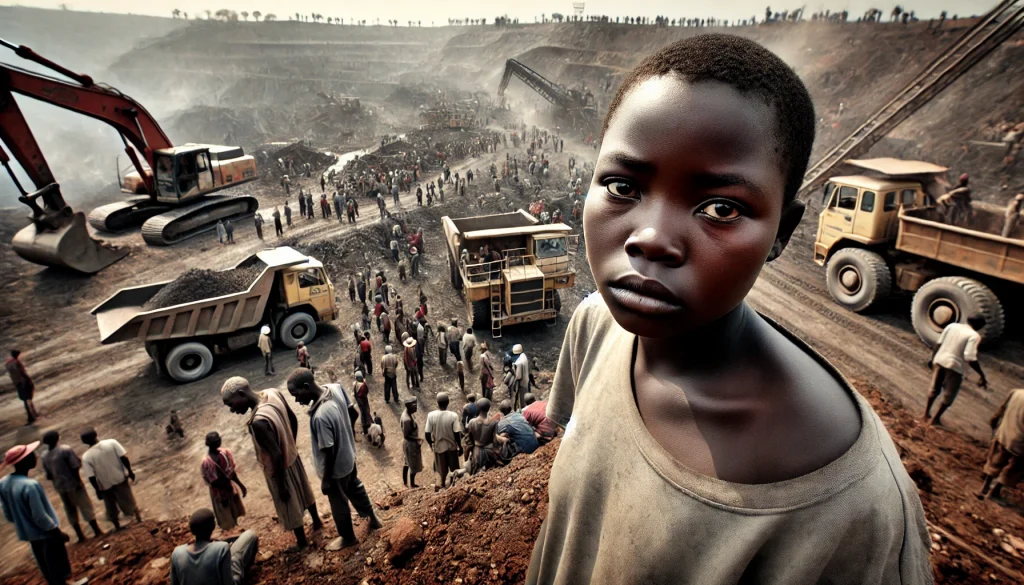
By James Standish
It’s called “survival sex” and that we have a term for it lets you know just how common it is. Survival sex occurs when hungry women and girls are forced to exchange sex for the food they need to survive.[1] Survival sex is only one of forms of sexual exploitation and violence that thrives in the chaos that has enveloped the Democratic Republic of Congo (also known as DRC or Congo).[2] In 2010, Margot Wallström, the UN Secretary-General’s then Special Representative on Sexual Violence in Conflict called Congo the “Rape Capital of the World,”[3] and it’s a title that has stuck. In the interim, the UN reports cases of sexual exploitation have only increased.[4]
How did Congo become a “rape capital”?
If you had to name the war that took the most lives since World War II, which conflict would you name? Korea? Vietnam? Former Yugoslavia? Russia-Ukraine? Afghanistan, Iraq, Gaza, Syria, and Libya combined? Not even close. The Second Congo War – sometimes called the African World War – was by far the costliest conflict in human lives since WWII. The most widely reviewed estimate is that in the range of 5.4 million people died directly or indirectly in the conflict that raged from the late 90s into the 2000s. Congo is a massive nation – about as large as the entirety of western Europe – and the Second Congo War involved a number African nations that sent troops or support to the many armed groups. And the fighting hasn’t ended as neighbor nations continue to wage proxy wars and foreign interests work to safeguard their access to Congo’s precious resources
[display-map id=’35982′]
Where are the DRC and Congo in Africa?
All of this may seem like a long way from us, but chances are you carry a little bit of Congo with you every day. Congo produces close to 70% of the world’s cobalt and cobalt is used in the batteries that power our phones. Everybody wants the cobalt and the money that comes with it, but as they scramble to get their hands on it, the ongoing conflict has produced a culture where child exploitation and sexual violence is widespread and in the chaos of conflict goes completely unpunished. The stories of sexual violence from Congo are so shocking that they are too gruesome for mass publication. But they are real, and the women and girls of Congo desperately need our help.
But how can we stop this ongoing catastrophe?
A new study gives an idea.
This June researchers surveyed a broad range of organizations serving women and girls in Congo. [5] Of those interviewed, 96% reported the lack of secure access to food drives the increase in rapes and sexual exploitation. This may be counterintuitive until you unpack the relationship between food and sexual violence and exploitation. Secure access to food ensures women and girls aren’t coerced into survival sex. It also means they don’t have to travel far and wide in search of food where they are vulnerable to roaming bands of armed men. It means they have the most basic necessity of life to provide dignity, strength and hope
ADRA is increasing the number of people we’re serving in Congo. And we’re not just feeding people; we’re teaching people how to grow crops that thrive even in difficult conditions, we’re building better food storage facilities so food doesn’t spoil before it can be distributed to hungry people, and we’re ensuring food can move efficiently from production to market to increase availability and lower costs. The big idea? No one – not one single girl or woman, boy or man –should be hungry. A very happy byproduct of assuring women and girls have access to food? The chances a woman or girl is attacked or exploited is reduced – and that means more women and girls living lives free from the painful physical and emotional scars left from sexual violence and exploitation.
At ADRA we see a child of God in everyone we serve, and we believe it is every Christian’s responsibility to do all we can to help God’s children thrive – whether they live here at home, or in Congo. Access to food is at the heart of protecting Congolese women and girls from unspeakable crimes. That is why, despite the immense dangers our ADRA team face, we’re committed to expanding access to food to vulnerable people in Congo. But we can’t do it alone. Won’t you join us? Every life sustaining meal we deliver brings protection, hope and dignity to the suffering women and girls of Congo.
[1] “Survival sex” can include the exchange of sex for any necessity, and men and boys can also be coerced into exchanging sex for life’s necessities.
[2] There are two Congos – the Democratic Republic of Congo, and the Republic of Congo. The two Congos share a border, with the Democratic Republic of Congo being far larger and having a population of 109 million people compared to the Republic of Congo’s population of 6 million.
[3] https://news.un.org/en/story/2010/04/336662
[4] https://www.unhcr.org/us/news/briefing-notes/unhcr-warns-mounting-violence-against-women-and-girls-eastern-drc
[5] InterAction, an alliance of humanitarian NGOs based in Washington, DC, developed a survey in June 2024 for gender based violence experts in the Democratic Republic of Congo. More than 150 specialists representing women-led and women’s rights organizations, international non-governmental organizations, local organizations, and UN agencies operating in DRC responded to the survey.